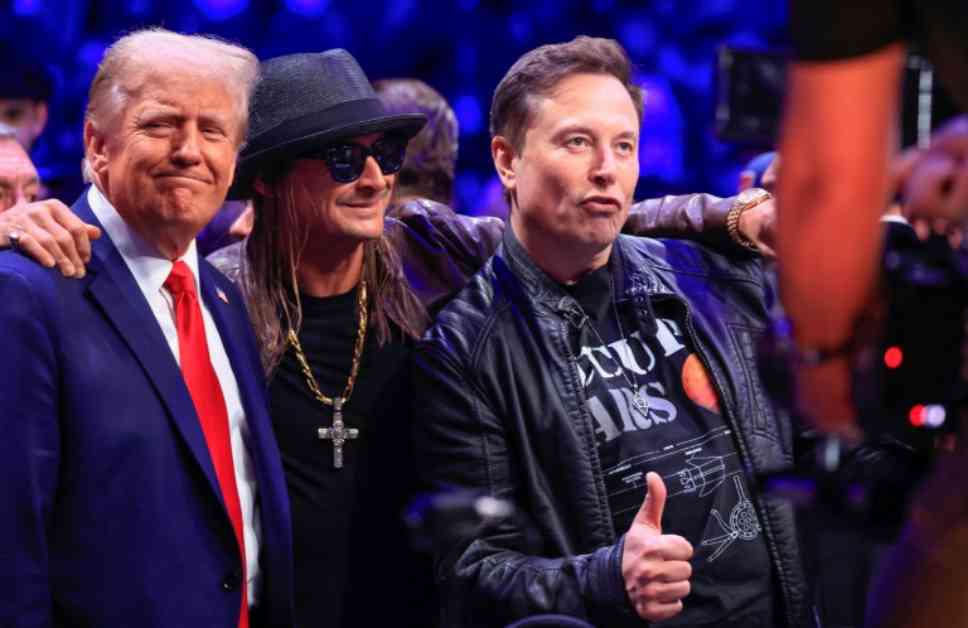Elon Musk’s Department of Government Efficiency (DOGE) is sparking widespread interest and excitement with its proposal to pay American taxpayers 20% of the savings resulting from the current federal downsizing efforts. If successful, these payments, dubbed DOGE dividends, could mean a significant financial boost for tax-paying households across the country in the form of £3,949 ($5,000) cheques directly deposited into their bank accounts.
President Trump expressed his support for this stimulus plan during a recent speech at the FII Priority Summit in Miami, highlighting the potential benefits of giving back to American citizens as a result of the massive savings being achieved through federal cost-cutting measures. The prospect of DOGE dividends becoming a reality has captured the attention of global financiers, tech executives, and everyday Americans alike.
### Do You Qualify For DOGE Dividend Cheques?
While it is estimated that more than 78 million tax-paying households in the United States could be eligible to receive DOGE cheques, there may be specific criteria that determine who qualifies for these stimulus payments. Azoria CEO James Fishback, the mastermind behind the concept of DOGE refunds, has hinted that the recipients of dividend cheques will likely be those who demonstrate a “propensity to save (not spend) the incremental dollar received.”
With Musk potentially gaining access to sensitive taxpayer data and having the ability to analyze individuals’ financial behavior, the qualification process for DOGE dividends could involve more than just a clean tax record. The intricate details of who will ultimately receive these cheques remain to be seen, but the potential impact on American households is undeniable.
### How Does DOGE Cheques Compare With Tax Refunds?
As Americans await news of potential DOGE dividend payments, many are already drawing comparisons between these proposed cheques and the traditional tax refunds issued by the IRS. Recent data from the IRS indicates that the average tax refund through direct deposit was £1,710 ($2,165) as of early February, significantly lower than the anticipated DOGE cheque amounts.
For many individuals and families, tax refunds serve as a crucial source of financial support, enabling them to cover essential expenses, eliminate debt, or bolster their savings. The introduction of DOGE dividends could represent a substantial financial windfall for taxpayers, offering a welcome injection of funds into their bank accounts.
### Can DOGE Cheques Impact Inflation?
The potential economic implications of distributing DOGE dividend cheques have sparked discussions among experts and economists regarding their impact on inflation levels in the United States. With the Federal Reserve striving to address persistent inflationary pressures, the introduction of these stimulus payments could play a role in shaping the country’s economic landscape.
While previous stimulus efforts during the pandemic provided much-needed financial relief to American households, concerns about inflationary pressures and rising consumer prices have been raised. The St. Louis Fed estimated that government stimulus measures contributed significantly to the 7.9% annual inflation rate in February 2022, underscoring the complex interplay between fiscal policy and economic stability.
In light of these considerations, the potential benefits of DOGE dividends for American taxpayers must be weighed against the broader economic implications of increased government spending. As discussions surrounding the rollout of these stimulus payments continue, the lasting impact they may have on inflation rates and overall economic health remains a topic of ongoing debate and analysis.
As the nation awaits further developments on the implementation of DOGE dividend cheques, the potential for direct financial support to American households represents a significant step towards economic recovery and stability. With key stakeholders and policymakers closely monitoring the impact of these proposed payments, the path forward for DOGE and its ambitious stimulus plan promises to shape the future of fiscal policy in the United States.













